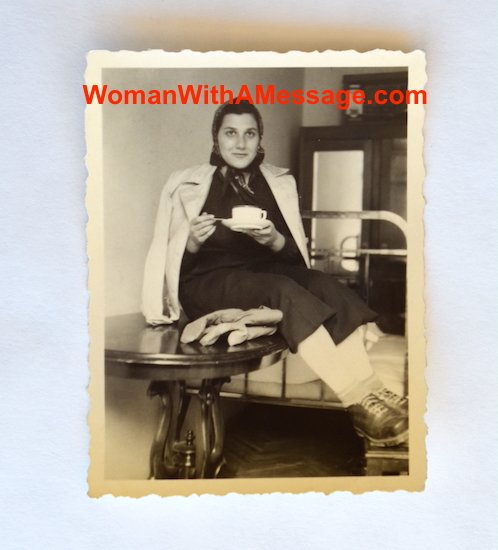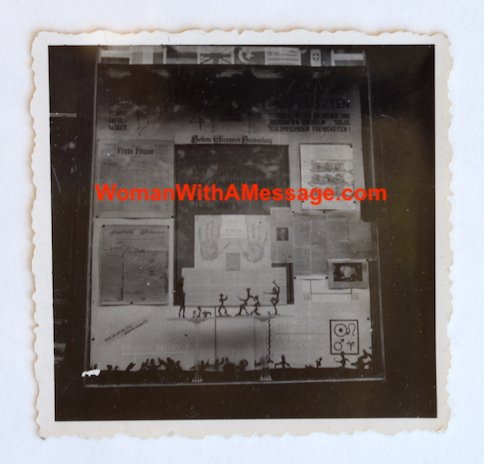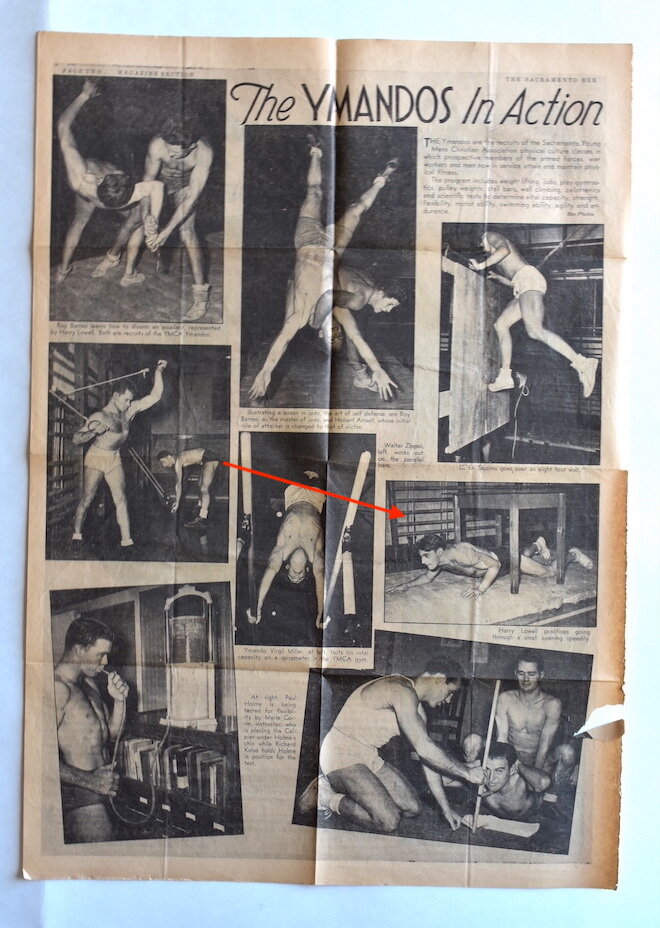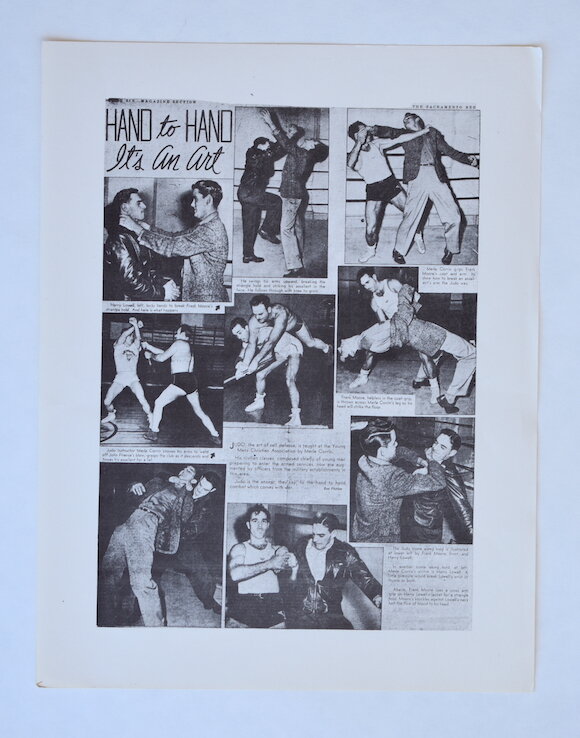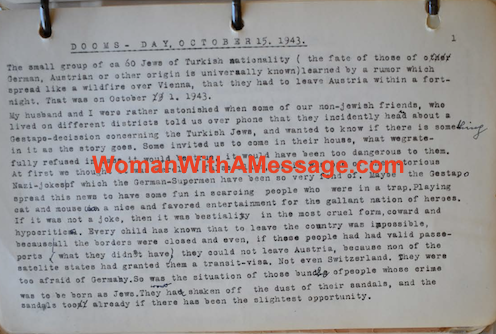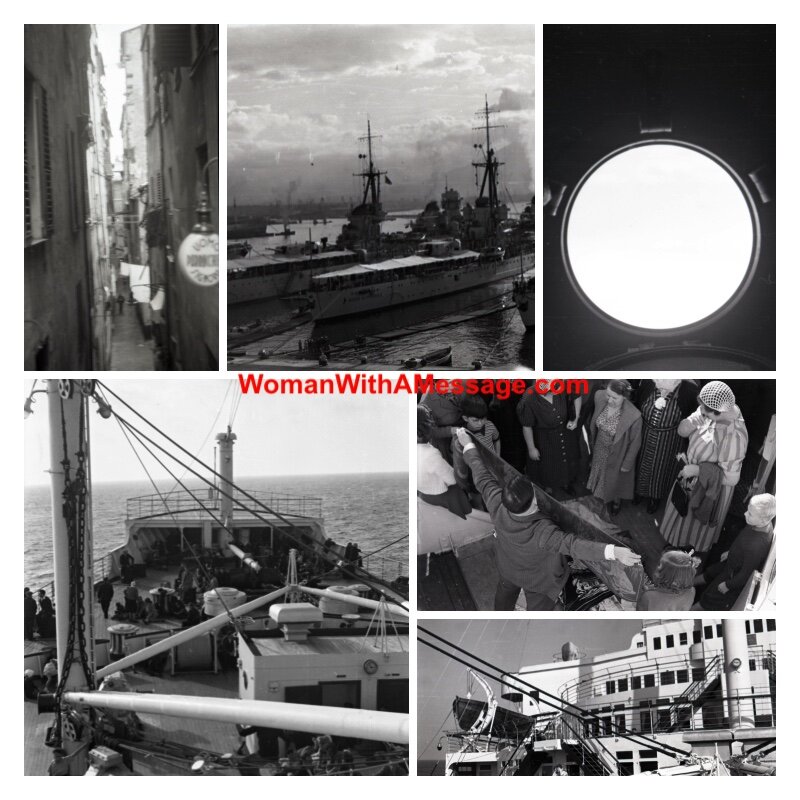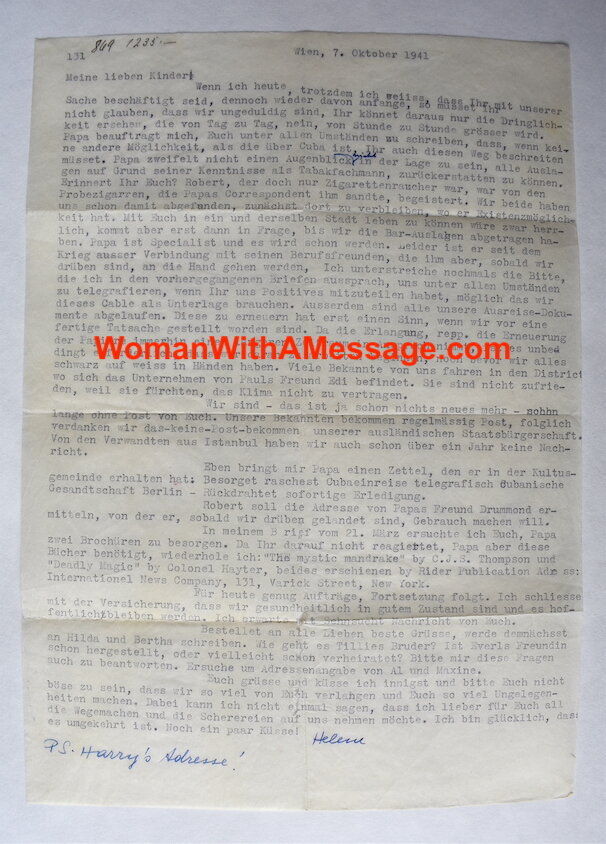Link to Family Tree to understand family relationships.
As we learned in yesterday’s letter, Vitali would only go to the post office on Fridays, so this letter from Helene to her children was probably sent along with those from October 28 and 29.
Clipper 57b Vienna, 30 October 1940
My dear little bunnies!
Yesterday I grumbled a little bit, and today a letter actually arrived (#6 from October 15). The question I asked Eva yesterday – whether she has Sunday off – have become pointless because the letter today explains all that. Two hours of work on Sunday wouldn’t be all that bad, but it’s unfortunate that they are so far apart. Well, you can’t do anything about that. I guess life would be just too good otherwise. About the first evening dress that Tillie bought for you - you had a cyclamen-colored lipstick to match the dress and I do hope that you don’t go for a bright green one. Harry, as a kitchen expert, well that’s nothing new. It’s interesting that Papa recently brought me a rolling pin to make pastry with, to which I kind of had the same reaction as Hilda did. Only the fact that there were a whole week’s ingredients in that dough, that’s the only reason I didn’t throw the dough right at the wall. The dough did not really stay stuck to the roller but one sheet of dough only made two cakes, which were only the size of a flat plate. It would be efficient, but imagine if everybody were a little wanted to eat fine cakes? No, no, I’m going to use the old system, even if Papa calls me backward because of it. Harry had the same wish to rescue the reputation of the Viennese coffee cream torte. That’s sweet, funny. Yes, yes. Two souls and one thought, two hearts but only one stomach. Since your letter today arrived, Papa’s been scratching and he is of the opinion that our sacred boy stuck a flea in the envelope. At least the description of the flea hunt was a journalistic masterpiece, even if Papa who usually only believes in facts was able to imagine the magic of being bitten by a flea.
You wanted to hear more about our subletters? Okay, let me present to you Herr Lubinger, an old age pensioner who has quite a historic face. His activities now are going to get cigarettes for himself, going to get milk for me, copying my recipes for his wife, and asking me if we could make all of that again. I told him, well, yes, eventually. While his wife and I support each other in house and culinary work, he sits there over a chess problem. In the afternoon he reads Homer or Ovid or he borrows one of the books that we still have around.
Frau L looks like your piano teacher Einö-Zweiö and I managed to impress her because I was twice as tall and three times as wide. After we wash dishes, we don’t see each other until we make breakfast together. This is the time for cooking lessons. The recipe instruction “you take a…” is a problem that is hard to solve., but at the last moment the redeeming thought will come. Mrs. Clara Friedman, on whose recommendation we decided to take this pair in as our subletters, is now herself in a difficult situation because her big apartment has been requested. Unfortunately, I cannot reach her by phone anymore, because she no longer has a phone. If Everl gets a letter from Jo, “dear Eva and dear Alf”, don’t believe she is crazy. The letter is actually for both of you and you should send the original to Alf. Your mother is fresh and spry and at the moment quite busy with sewing sleeves onto your father’s sleeveless vest (without eyeglasses). What a generation that was! So, does Lotte Lehmann still sing? I cannot imagine “Rosenkavalier” being performed without Richard Meyer. What is Mr. Fleischer doing? Does Paul get together with him very often?
That’s enough for today! Keep me in your loving thoughts and stay the way you are. I love you!
Helen
P.S. Say hello to everybody.
In addition to numbering and keeping copies of letters, Helene often gives a recap of the letters she receives, giving us a sense of their “conversations.” It’s impressive to see how quickly mail arrives when it does arrive – I don’t know that our international mail is any quicker these days.
Helene’s comment about both Vitali’s and Harry’s desire to “help” in the kitchen sounded like a quotation and it is. The original is: “Zwei Seelen und ein Gedanke, zwei Herzen und ein Schlag" Two minds with but a single thought; two hearts that beat as one attributed to Eligius Franz Joseph von Münch-Bellinghausen from “Der Sohn der Wildnis” in 1842
It is wonderful to hear more about the couple sharing their apartment – each letter brings them more fully into focus. They provide a welcome distraction from the ever-worsening situation in Vienna as well as from the sporadic mail delivery.
I could not find any mention of Richard Meyer, but found an advertisement in the San Francisco Examiner for a performance of “Der Rosenkavalier” on October 16, 1940 featuring Lotte Lehmann. I assume Eva wrote to her parents about this, and perhaps even attended.
From The San Francisco Examiner, October 16, 1940, p. 35
Baritone Arthur Fleischer was born in Vienna in 1881, arrived in San Francisco in 1939, and died there in 1948. Interesting to hear that Helene’s nephew Paul Zerzawy was friends with him. Like Paul, he taught music and performed in the Bay Area. The San Francisco Examiner from 1939 and the 1940s has several articles and advertisements about Fleischer. In an article about his first concert in San Francisco, on page 52 of the May 7, 1939 edition of the San Francisco Examiner it said: “Famous throughout Central Europe as opera and concert star, Baritone Arthur Fleischer, a newcomer here, will give a debut recital at the Century Club Thursday evening….Fleischer will sing arias of ‘Don Giovanni,’ ‘Meistersinger,’ Verdi’s ‘Requiem’ and ‘Don Carlos’ and Smetana’s ‘Bartered Bride.’” Helene and Vitali had musical soirees at their home in Vienna – I wonder whether Fleischer ever joined them?



